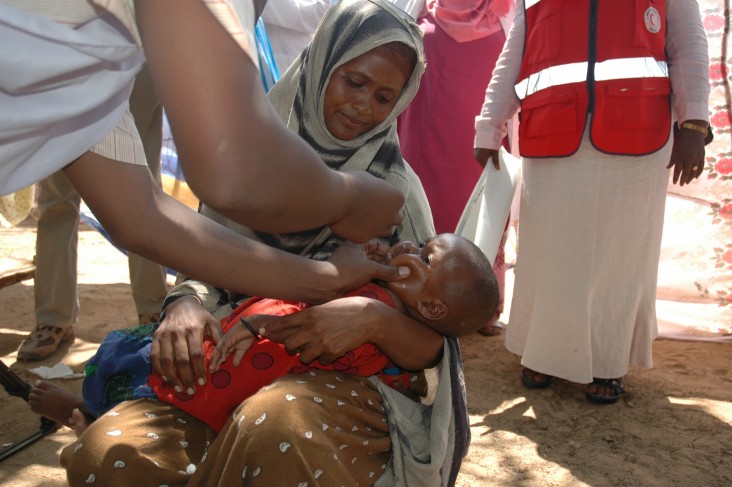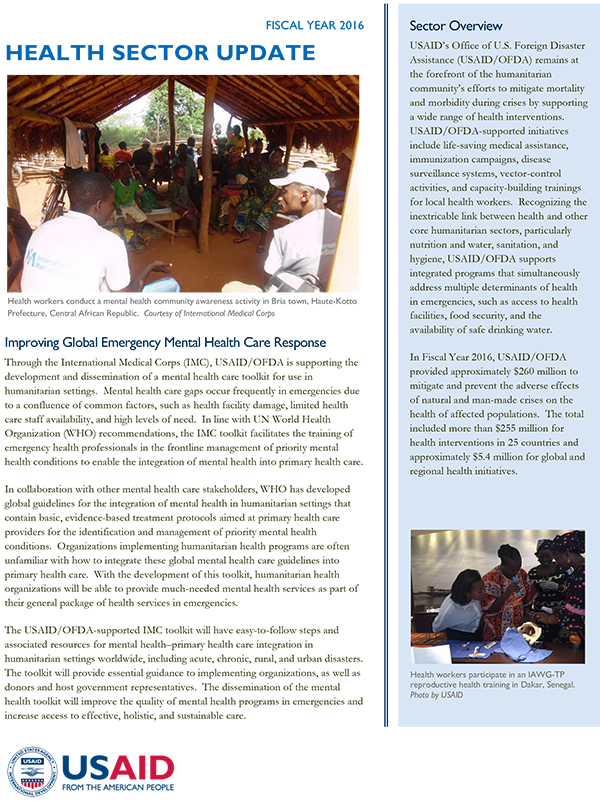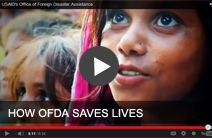- What We Do
- Agriculture and Food Security
- Democracy, Human Rights and Governance
- Economic Growth and Trade
- Education
- Ending Extreme Poverty
- Environment and Global Climate Change
- Gender Equality and Women's Empowerment
- Global Health
- Water and Sanitation
- Working in Crises and Conflict
- Disaster Assistance
- Political Transition Initiatives
- Conflict Mitigation and Prevention
- Countering Violent Extremism
- Disaster Risk Reduction
- Peacebuilding and Reconciliation
- Providing Safe & Secure Environments for Development
- Recovering From Crisis
- Resilience
- Tech Challenge for Atrocity Prevention
- World Humanitarian Day
- U.S. Global Development Lab

USAID/OFDA Health Sector Update ![]() (pdf - 260k)
(pdf - 260k)
USAID’s Office of U.S. Foreign Disaster Assistance (USAID/OFDA) remains at the forefront of the humanitarian community’s efforts to mitigate mortality and morbidity during crises by supporting a wide range of health interventions. USAID/OFDA-supported initiatives include life-saving medical assistance, immunization campaigns, disease surveillance systems, vector-control activities, and capacity-building trainings for local health workers. Recognizing the inextricable link between health and other core humanitarian sectors, particularly nutrition and water, sanitation, and hygiene, USAID/OFDA supports integrated programs that simultaneously address multiple determinants of health in emergencies, such as access to health facilities, food security, and the availability of safe drinking water.
In Fiscal Year 2016, USAID/OFDA provided approximately $260 million to mitigate and prevent the adverse effects of natural and man-made crises on the health of affected populations. The total included more than $255 million for health interventions in 25 countries and approximately $5.4 million for global and regional health initiatives.









Comment
Make a general inquiry or suggest an improvement.